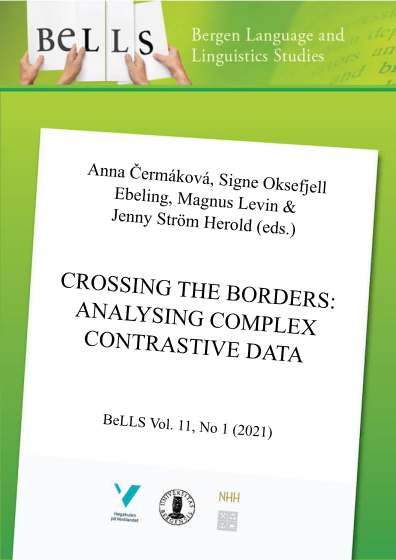Relativizers as markers of grammatical complexity: A diachronic, cross-register study of English and German
DOI:
https://doi.org/10.15845/bells.v11i1.3440Abstract
In this paper, we investigate grammatical complexity as a register feature of scientific English and German. Specifically, we carry out a diachronic comparison between general and scientific discourse in the two languages from the 17th to the 19th century, using relativizers as proxies for grammatical complexity. We ground our study in register theory (Halliday and Hasan, 1985), assuming that language use reflects contextual factors, which contribute to the formation of registers (Quirk et al., 1985; Biber et al., 1999; Teich et al., 2016). Our findings show a clear tendency towards grammatical simplification in scientific discourse in both languages with English spearheading the trend early on and German following later.
Downloads
Published
How to Cite
Issue
Section
License
Copyright (c) 2021 Marie-Pauline Krielke

This work is licensed under a Creative Commons Attribution-NonCommercial 4.0 International License.


